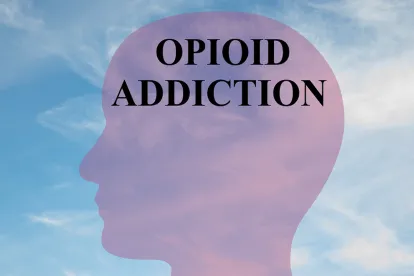On March 25, 2022, the U.S. Department of Justice (DOJ) found the Indiana State Board of Nursing violated Title II of the Americans with Disabilities Act (ADA) when it refused to allow a nurse taking medicine prescribed to treat opioid use disorder (OUD) from participating in the Indiana State Nursing Assistance Program (ISNAP). ISNAP rehabilitates and monitors nurses with drug or alcohol addiction, and participation in the program is typically required to maintain or reinstate an active nursing license necessary for employment.
Background
To treat her OUD, the nurse’s doctor had prescribed buprenorphine, which helped diminish the effects of physical dependency on opioids. The nurse described the medication as “lifesaving, allowing her to function completely normally, be a good mother …, and feel whole again.” But the ISNAP was “an abstinence based program,” and to participate, nurses were required to taper off any medicine used for OUD. The nurse’s doctor determined the nurse should not taper off buprenorphine, believing if she stopped, there was a significant risk of relapse. Her physician’s conclusion was consistent with advice from the U.S. Department of Health and Human Services’ Substance Abuse and Mental Health Services Administration, which has cautioned that “patients who discontinue OUD medication generally return to illicit opioid use.”
Notwithstanding her doctor’s recommendation, and other medical authority, the Indiana State Board of Nursing informed the nurse that she would have to taper off buprenorphine within three months after enrolling in ISNAP. As a result, the nurse did not enroll in ISNAP.
The DOJ’s Analysis and Conclusion
The DOJ first addressed whether the nurse was a qualified individual with a disability under the ADA, which does not protect current illegal drug users. When the nurse applied to participate in ISNAP, she had been rehabilitated successfully and she no longer illegally used drugs. Thus, the DOJ found she was a qualified individual with a disability.
The DOJ reviewed and discussed substantial medical research regarding medications used to treat OUD and noted that tapering off such medications works for some persons, but not others.
The DOJ concluded the “prohibition on ISNAP participants’ use of OUD medication … penalized [the nurse] for her disability and was not justified by any individualized medical assessment.” (Emphasis added.) The DOJ also determined:
ISNAP’s policy requiring [the nurse] to stop using buprenorphine is not necessary to ensure that she achieve rehabilitation and monitoring for the illegal use of opioids. On the contrary, [the nurse] was prescribed buprenorphine because she had struggled to remain sober without the assistance of OUD medication. Her treatment experience and needs align with medical research ….
The Indiana State Board of Nursing’s Response to the DOJ’s Findings
The Indiana State Board of Nursing responded to the DOJ findings on March 30, 2022, posting a notice informing the public of its intent “to promulgate rules … to remove the ‘abstinence based’ requirement from its [ISNAP], and to require evidence-based treatment.” Stated another way, the Board plans to promulgate rules to assess future applicants’ admission into ISNAP based on the evidence, medical and otherwise, specific to each applicant’s situation.
Key Takeaways
Analyzing the specific facts and circumstances of each situation is fundamental to determining a covered entity’s obligations under the ADA. The ADA compels private employers and public and private entities to consider potential reasonable accommodations or modifications of a rule or process for an individual with a disability. The fact-specific analysis may result in no change (i.e., upholding the rule or process), a modification to the rule or process, or some other outcome or solution.




 />i
/>i

